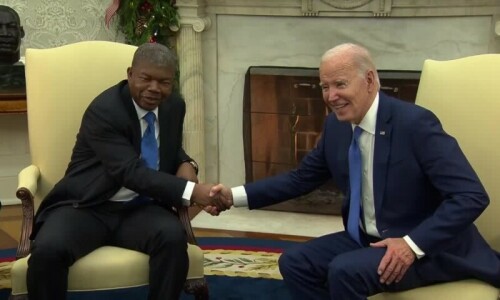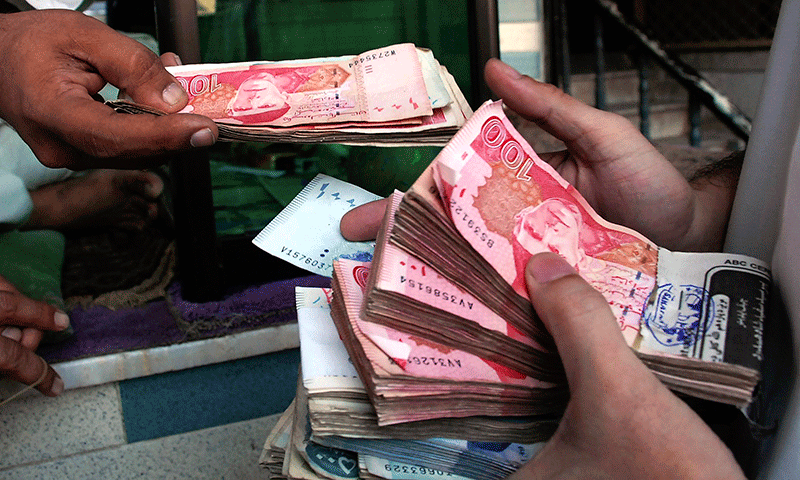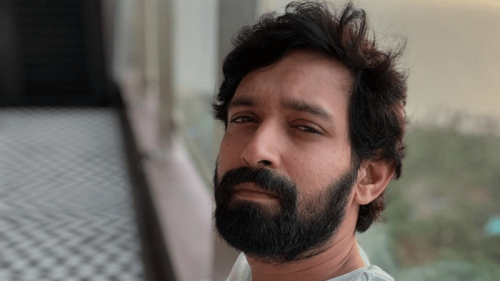Masud Khan, a 19-year-old student, didn’t know that it would be his last visit to his ancestral area when he decided to spend summer vacations with his family in the picturesque Tirah valley after taking FSc examination in March last year.
He along with his elder brother Mohammad Khan was killed when Taliban attacked their village in Bagh-Maidan area of Tirah. “Taliban ruthlessly killed both my young sons on suspicions of having links with Ansaarul Islam and later torched my house when they occupied Bagh-Maidan in March last year,” 65-year-old Sardar Khan Malikdinkhel, the father of Masud Khan and Mohammad Khan, told Dawn.
With tears rolling down his cheeks, he said that their only sin was that they supported Ansaarul Islam against Taliban to save their ‘homeland’. He said that he shifted to Peshawar along with thousands of other internally displaced persons of Tirah after the killing of his sons and settled there with some relatives till Fata Disaster Management Authority (FDMA) arranged for their return in November last year.
Since then Sardar Khan along with hundreds of tribesmen, who had lost their near and dear ones during the Taliban occupation of Bagh-Maidan, have been waiting for the compensation, promised by the government.
“The killing of my two sons and the apathy of Khyber Agency political administration left me mentally disturbed and financially bankrupt,” he said in a chocked voice. He added that he along with his family was compelled to bear the harsh winter of Tirah in his roofless house as he had no money to rebuild the damaged house.
Most of the returning IDPs from Malikdinkhel, Bar Qambarkhel, Shalobar, Adamakhel and Zakhakhel tribes believe that the departments concerned made a wrong decision by sending them back to their homes in November last year when the valley was in the grip of chilly winter and most of the houses were not suitable for living. “The winter starts in Tirah in October and lasts till February, during which most parts of the valley receive excessive rains and snowfall, making life miserable for local people,” they said.
They said that Taliban plundered and destroyed the houses of their opponents when they took control of Bagh-Maidan in March last year besides taking away the precious timber used in ceilings of most of the multi-storey houses.
A survey, conducted by the UN-Habitat in collaboration with Fata Disaster Management Authority in December last year when about 14,500 displaced families were repatriated to Tirah, said that 25 per cent houses in Bagh-Maidan were destroyed completely while 45 per cent were without roof. It said that damage to 70 per cent of the house posed serious threat to the returning IDPs in the harsh winter of the region.
Malak Shah Adamkhel, who is living in a damaged house along with his family, said that currently almost half of the returnees were compelled to live in make-shift houses while the rest had taken shelter in their damaged houses.
He said that most of the returnees were in dire need of weather-proof shelters as they were exposed to harsh weather. “Unfortunately the government has failed to provide us with required funds for rebuilding our damaged houses despite a lapse of six months after our return to the valley,” he said.
“Based on the assessment of the damaged caused to the houses, it is highly recommended to provide immediate shelter support to the affected population and to formulate housing reconstruction policy as part of early recovery measures,” Pakistan chapter of UN-Habitat said in its survey. The government is yet to enforce the recommendations of the UN agency.
Mr Adamkhel said that all the edibles and other necessary items of daily use they had stockpiled at their homes before the attack of Taliban were plundered by the insurgents and majority of the returning families had very little to survive the hostile winter during the months of November, December and January.
He said that food and other items provided by FDMA were hardly sufficient for a week and they had travel back to Hangu, Kohat and Peshawar to get food and other daily use items.
Khewa Jan Kamarkhel said that their main occupation was agriculture but they had to leave behind most of their standing crops, some of them ready for harvesting, when Taliban took over their area. “The destruction of standing crops inflicted huge financial losses on most of the farmers. Many of us were compelled to borrow money on credit from our relatives living in Peshawar and other cities,” he stated.
Mr Kamarkhel said that most of the returnees were eager to revive their farming as May and June were the proper months to cultivate their lands but security forces and political administration of Orakzai Agency had imposed ban on carrying of urea and diesel to Tirah valley via Arhanga Pass, which was the only route to Bagh-Maidan as other alternate routes were occupied by either Taliban or Bara-based Lashkar-i-Islam.
He said that the ban had dealt a blow to their plans about revival of agricultural activities, which their main and legitimate source of income.
Sadiqullah, another farmer, demanded of the government to lift the ban on urea and diesel and also provide them with free seeds and agricultural tools. FDMA claimed to have sent back nearly 5,000 displaced families to Tirah during the ongoing second phase of return plan, which started on May 5 and was recently extended till June 27.
FDMA claims that it provides free transport, non-food items, hygiene kit, bottled water and cooked food for few days to the returning IDPs upon arrival at Tirah. However, most of the returning families complain about the slow process of identification by the army and Frontier Corps at Arhanga Pass.
Misal Khan of Bar Qambarkhel and Mohammad Akbar of Shalobar tribe said that their families including women, children and ailing elders were made to wait for hours in scorching heat and at times severe rain for identification. They said that the process of identification should be made simple and faster to save their time.
Published in Dawn, June 8th, 2014












































Dear visitor, the comments section is undergoing an overhaul and will return soon.